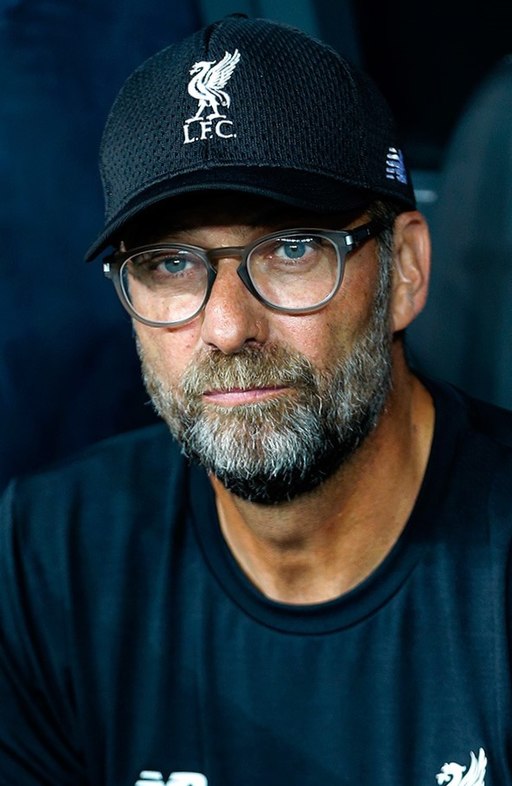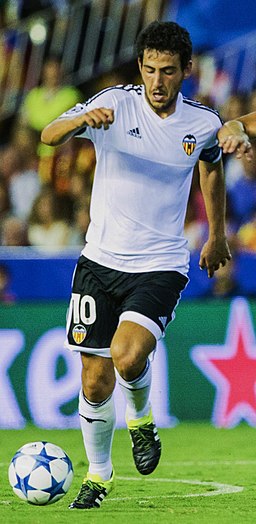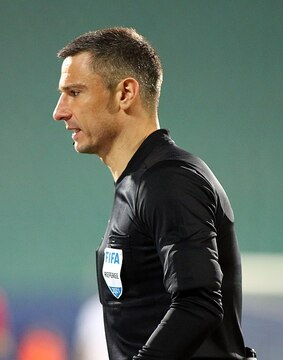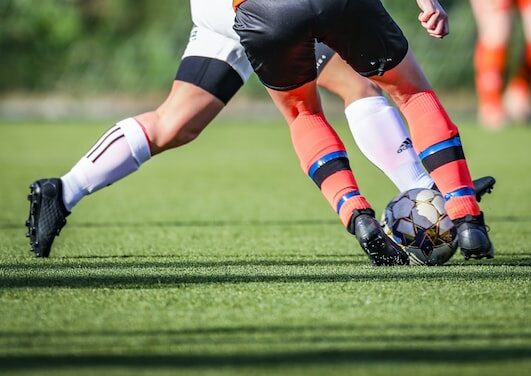

Pics source: “Liverpool vs. Chelsea, UEFA Super Cup 2019-08-14 04” by Mehdi Bolourian is licensed under CC BY 4.0; Unai Emery – Sevilla by Aleksandr Osipov is licensed under CC BY-SA 2.0.
Francis Coquelin dropped to the ground clutching his face. Referee Szymon Marciniak of Poland blew his whistle, stopped play and awarded a free-kick to Villarreal. Liverpool players, who were still trying to control a corner kick delivered by Trent Alexander-Arnold, walked away from the Villarreal box to let the Spanish side’s goalkeeper take the free-kick.
Nothing had come of – or been allowed to come of – Liverpool’s corner kick and the rhythm of the English giants was broken, at least temporarily.
THE ISSUE OF TIME-WASTING
AND PLAYACTING

Replays revealed that Coquelin went down in the Villarreal box after the slightest of brushes with the forearm by Liverpool forward Sadio Mane on the Frenchman’s face. By itself, such an occurrence is unremarkable. A football match is filled with these kinds of events, in which teams try to take advantage of one another. But unfortunately, these kind of incidents, playacting and time-wasting during matches, corrode the appeal of football as a spectacle.
In the 39th minute of the first-half of the same match, Liverpool mounted yet another assault on the visitors’ goal. Mohammed Salah and Mane were already inside Villarreal’s box when Liverpool’s Colombian winger Luis Diaz ghosted into the box to receive a pass from Alexander-Arnold. As Diaz miscontrolled the ball and set off to retrieve it, Villarreal’s Dani Parejo ran into Diaz and crumpled to the ground. Referee Marciniak again blew the whistle and Villarreal again had a free-kick. Another Liverpool assault had been thwarted.
Villarreal went into the break at Anfield with the score at 0-0, but Liverpool would eventually breach the Spaniards’ defence twice on the night with relentless pressure. Liverpool manager Jurgen Klopp had said there was “no chance” his side would underestimate Villarreal after their giant-killing feats of beating Juventus and Bayern Munich earlier this year, and he was true to his word.
Just as Klopp had learned from Villarreal’s victories over Juventus and Bayern however, Wednesday’s match would have been a far better encounter if another person had followed Klopp and done the same.
A HERO IN BAVARIA

In preparation for the Liverpool-Villarreal match, referee Maciniak could have done worse than look at the way the second-leg of the Bayern Munich – Villarreal quarterfinal had been officiated. That particular match was refereed by Slavko Vinčić of Slovenia. While the football in the quarterfinal itself had its share of drama, the tie also featured one of this season’s most comical incidents.
In the 51st minute of the match at Allianz Arena, Villarreal’s right-back Juan Foyth went down near his box. He was clutching his right knee after Bayern winger Kingsley Coman, while delivering a cross into the Villarreal box, accidentally caught Foyth in the knee in his follow-through.
Foyth’s teammate Giovanni Lo Celso, who was nearby, motioned to referee Vinčić to stop play. Vinčić duly complied and went running over to Foyth. As he did, Vinčić did something that caught the attention of the players around him. The Slovenian was pointing to his watch, telling everyone that he was keeping an eye on the time.
Upon reaching Foyth, Vinčić inquired what was wrong. The Argentinean pointed to his knee and presumably said he had been fouled and was injured. Vinčić immediately motioned to the medical staff on the sidelines to escort the Argentinean out of the playing field to receive treatment.
As soon as Foyth saw the medical personnel charging towards him and realised he would have to leave the playing field, however, he motioned to the personnel that he was alright and would soldier on. Vinčić, too, instructed the medical personnel to stay back, helped Foyth get back on his feet and ran back to resume officiating the match again.
While Bayern deserved to lose to Villarreal in the quarterfinal and the Yellow Submarine merited their place in the semifinals, there was another winner on the night.
Referee Vinčić made it known that wasting time and playacting would not be tolerated on his watch. He did not succeed entirely, but the game was a better spectacle for his actions.
HOW TO INCREASE EFFECTIVE PLAYING TIME

“Gianni Infantino in Tehran, 2018 06” by Foad Ashtari is licensed under CC BY 4.0.
Villarreal, to be fair, are not the only side in the world to indulge in time-wasting and playacting. They are a symptom, not a cause. The issue is so serious that Italian newspaper Corriere Dello Sport reported recently that FIFA president Gianni Infantino was considering increasing the duration of football matches to 100 minutes from the present 90 minutes. FIFA, the report said, wants to increase the amount of effective playing time in matches. Effective playing time is the time the ball is in play during a match.
Research bears out FIFA’s case. A report by the CIES Football Observatory (a research group within the International Centre for Sports Studies (CIES), an independent study centre located in Switzerland), says that the effective playing time of football matches is the worst in Spain among Europe’s five big leagues. The average effective playing time was just 59.3% for Spain’s La Liga.

the Bundesliga topped Europe’s top five leagues when it came to
effective playing time in matches, with 63.9%. “Manuel Neuer 2020”
by Антон Зайцев is licensed under CC BY-SA 3.0.
The German Bundesliga topped the list among the top five leagues with 63.9% while the Italian Serie A was next with an average effective playing time of 63.2%. Italy was followed by France and England, with the Ligue 1 recording 62.4% and the English Premier League at 62% respectively. The UEFA Champions League had a healthy average of 64.7% while the UEFA Europa League had a slightly lower average of 62.5%. The CIES report was published in April 2021 and took into account data since July 2019.
While considering the figures however, it has to be borne in mind that the Bundesliga, which is an 18-team league, features only 306 league matches every season while the other four leagues of the Big Five feature 380 matches as they are all 20-team leagues.
WHAT ARE THE SOLUTIONS?
Various solutions have been put forth in the public domain by fans and experts alike to increase effective playing time. These include stopping the clock when the ball goes out of play to awarding yellow cards to players who waste time to increasing the stoppage time to compensate for the loss of playing time.
In an era where attention spans are shrinking by the day, would increasing the length of matches be advisable? Even if more time is tacked on to stoppages, how exactly would you compensate a team whose attacking rhythm has been disrupted by time-wasting or playacting? Yellow cards are already being handed out for time-wasting by referees but the practice does not seem to deter teams bent on pushing the rules to breaking point.
Maybe firmer refereeing is the answer. It may not be the only solution, but it would be a start. More referees like Slavko Vinčić would not just make matches run smoother, they would also enhance football as a spectator sport.
